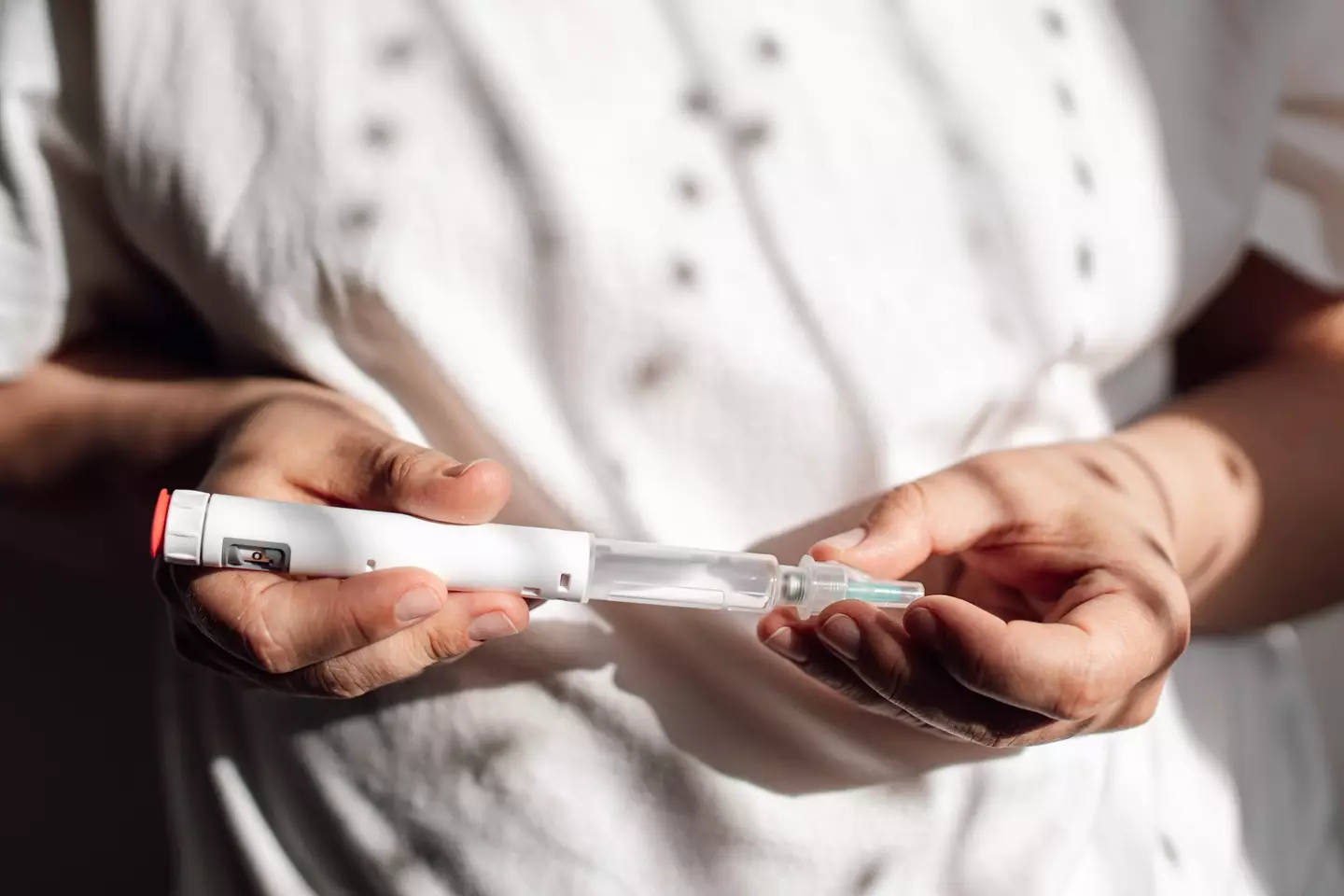.jpg)
Although Ozempic has been around since 2019, its popularity has increased in the last few years, with people opting to take the medication to aid with weight loss.
In case you've not heard, Ozempic is a medication that helps to bring down a person's blood sugar levels.
It's primarily used for those with Type 2 diabetes, but many people, including celebrities, have been using it - or similar weight loss jabs such as Wegovy - to drop the pounds.
With use of the drug increasing, people have been discussing their experiences, including the kinds of side effects they've noticed and what happens after you stop taking the treatment.
Advert
Now, it's been explained what happens if you take just one dose of Ozempic and how long the treatment stays in your system.

How does Ozempic work?
Ozempic works by injecting the medication into fatty tissue, like your tummy or the back of your arms, on a regular basis.
The medicine triggers an insulin rush that simply pushes sugar out of your bloodstream and in to cells for your body to use.
Ozempic is the brand name for semaglutide, which is the active ingredient in several weight loss medications. Semaglutide is known as a 'GLP-1 receptor agonist' which is a drug that imitates your body’s natural hormone, GLP-1.
GLP-1 is involved in a number of functions in the body, including blood sugar regulation and promoting feelings of fullness. The result means those using the medication should feel less hungry more often and fuller for longer.
If you want to see an actual visualisation of what that looks like, Zack D. Films has done just that. Over on YouTube, the content creator has shared a simulation video of what sort of side effects come with taking Ozempic medication, often prescribed once a week in different doses.
"Once Ozempic is in your bloodstream, it activates the parts of the brain that make you feel full, reducing your appetite," he said in the clip.
"It also stabilises your blood sugar, stopping sudden cravings. Then it slows down how fast your stomach empties food, which keeps you feeling full for longer after a meal.
"This causes you to lose weight as you eat less. But it can make some people feel sick and even give them diarrhoea."
In the last scene of the simulation, the YouTuber shows a graphic visualisation of the Ozempic user experiencing the unpleasant side effect.
What happens if you take one shot of Ozempic?
Although you may notice some appetite suppression, it may take four to eight weeks to notice any differences in weight.
According to Healthline, Ozempic starts to work one to three days after it's been injected, however every patient is different.
Medical News Today explains: "You’ll take Ozempic via subcutaneous injection (an injection under your skin) once per week. For the first 4 weeks, you’ll receive a low dose, typically 0.25 milligrams (mg). Most people won’t notice any effects of Ozempic on their blood glucose levels within the first 4 weeks of treatment.
"... Because Ozempic helps slow the passage of food through the stomach, you might feel fuller longer. Ozempic also targets an area of the brain responsible for appetite, so it may start to suppress your appetite within a few days or weeks of starting treatment."
Although one dose may suppress appetite, it is unlikely to lead to significant weight loss.

What are the side effects of Ozempic?
Healthline explain that the most common side effects of Ozempic include:
- abdominal pain
- constipation
- diarrhea
- nausea or vomiting
However, other side effects have also been reported, including:
- change in the way things taste
- burping
- dizziness
- headache
- flatulence
- fatigue
- indigestion
- acid reflux
- minor increase in heart rate

What happens when you stop taking Ozempic?
Going cold turkey on semaglutide can lead to withdrawal symptoms.
"When you stop taking semaglutide, you’re no longer providing your body with the medication that’s been boosting your natural GLP-1’s effects," Healthline explains.
"This can result in a resurgence of your original symptoms, also known as a rebound effect."
Possible withdrawal symptoms of finishing semaglutide treatment can include:
- increased appetite
- decreased feelings of fullness
- heightened blood sugar
- weight gain
- cardiovascular changes
It's important to seek medical advice if you're concerned about the symptoms you're experiencing.
